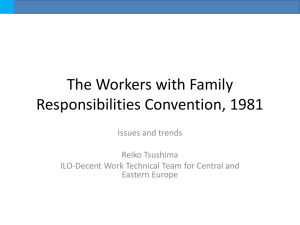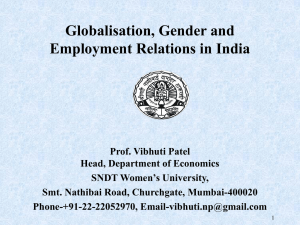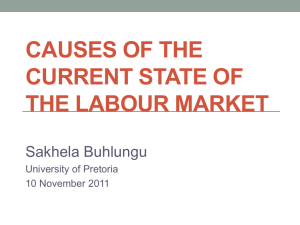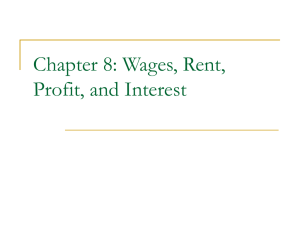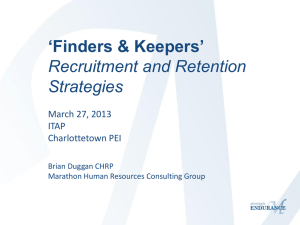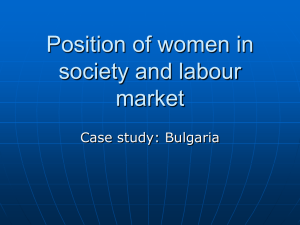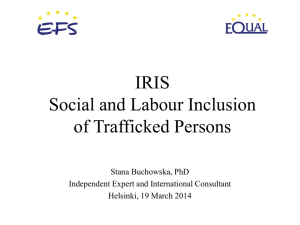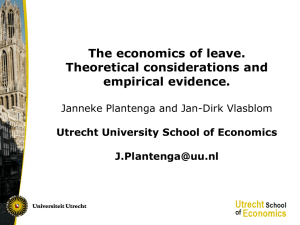Factors Affecting Wage Determination
advertisement
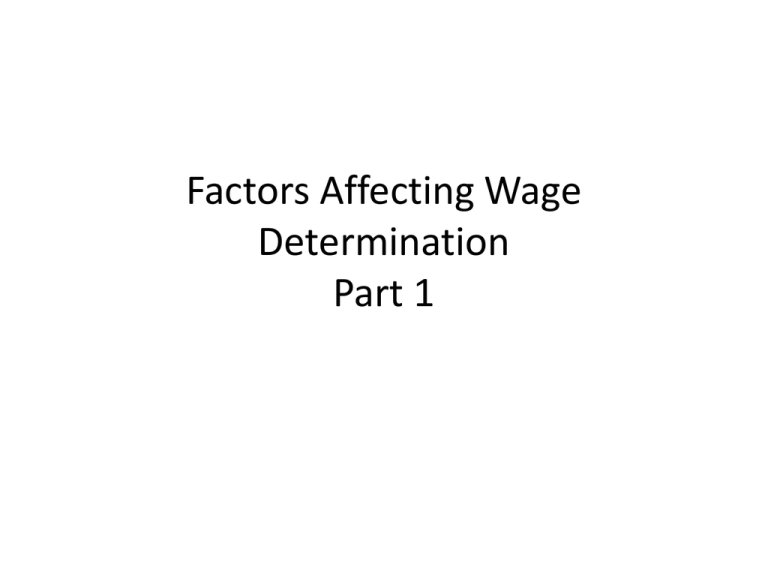
Factors Affecting Wage Determination Part 1 Theory of Labour Markets • Definition: labour market is market in which workers compete for work and employers compete for workers. • Salamon (2000): ‘labour market ‘ may be viewed as the way work is distributed in society. Elements – pay (level and distribution); work patterns (level, structure and organization) • Daft (2005): labour market represents people in the environment who can be hired to work. Theories • Economic approach: wages as a pricing mechanism regulates the supply and demand of labour; affects inflation and employment as well. Assumptions: - Income expectation is derived from what an individual is compensated for work in lieu of leisure (utility function) - The organization makes its decision about wages based on how productive labour is - The supply and demand for labour compete through the pricing mechanism of wages in order to reach the point of equilibrium where everyone willing to work at the given wage is employed. Sociological approach: seeks to explain how the market allocates job between groups of people. Overtime, specialisation of labour has given rise to social hierarchy i.e different work has different value. The labour market depends on the social acceptance of social hierarchies. Manifestations: division of work, skilled vs. unskilled; the concept of professions and the desire of others to be accorded the same status. Concepts • Dual labour market – involves one market in which supply and demand opeerates freely and another where employment is isolated from competition. • Passive labour markket policies – payments to support people during unemployment. • Active labour market policies – measures such as training on the job support programmes intended to influence the level and structure of supply and demand for labour.






